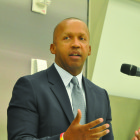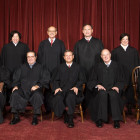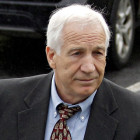
Facts American Adults Can Learn from Undocumented Kids
|
Now that young illegal immigrants are an election-year football, Americans have an opportunity to learn a few things from the kids. A lot of adults profess some degree of sympathy for these young people, who were born in undocumented parents’ native countries, brought here as very young children, either illegally or on visas parents overstayed. They’ve grown up here, gone to school here, speak English and feel American but are undocumented “through no fault of their own,” as both President Obama and GOP presidential contender Mitt Romney say. But why can’t they go back to where they were born, line up and become legal “the right way?" Young illegal immigrants have been asking the same sort of question for years, as demonstrated on forums started by so-called DREAMers.








